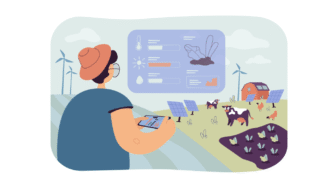LESSON OVERVIEW
The main objectives of this lesson about democracy are to:
- encourage curiosity and critical thinking by discussing systems of government;
- revise the vocabulary and improve the ability to talk about governance and democracy.
In this lesson about democracy, students engage in a conversation about democracy and civic participation, analyze quotes about democracy and evaluate various forms of governance. Students also watch an informative video on modern democracies and imagine creating their own micronation.
C2 / Proficiency45 min
60 minSpeaking ClassUnlimited Plan
This is a Speaking Class worksheet. It includes a variety of tasks that let your students practise their speaking skills. This lesson format does not focus on grammar or vocabulary. Learn more about it here.
WARM-UP AND QUOTES
Before starting the lesson, students can do a vocabulary activity to revise some terms related to the topic. The lesson starts with a warm-up in which students choose a statement about democracy to complete with their ideas. After that, they engage in a conversation about civic participation, the right to criticize government decisions, and the role of civic education in the school curriculum. Then, students read quotes about democracy and answer questions which spark critical thinking. Afterwards, students read the descriptions of different types of governance or societal organization and discuss the advantages, disadvantages and challenges of implementing each idea.
VIDEO AND DISCUSSION
In this part of this lesson about democracy, students reflect on some aspects (e.g. freedom of speech, rule of law, citizen participation, etc.) and evaluate their effectiveness within a democratic system. Then, they watch an informative video which explores the problems with democracy around the world and answer some questions about the topic. They also read a short text about micronations and complete the statements with their ideas. After that, students elaborate more on the topic by imagining they establish their own micronation. They describe it by addressing at least five of the points (e.g. institutional framework, symbolism and identity, legal system, etc.).
Subscribe to unlock these and many other Standalone lesson lesson plans with the Unlimited planWORKSHEETS












Painful video to watch… Referring to England as a sovereign nation just hurts my eyes and ears…
Sure, the video is not the easiest we’ve used for our lessons. And it might cause different reactions. But if your students are up for a serious discussion, this is the lesson. Plus, the video is easily skippable if you want to do the rest of the lesson 🙂